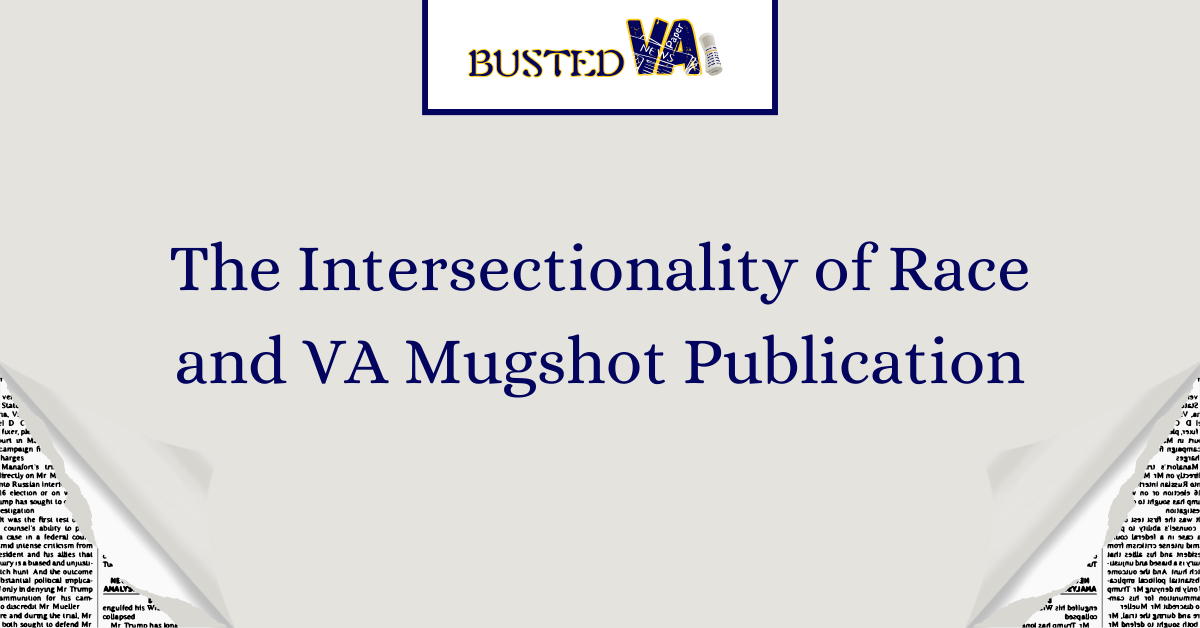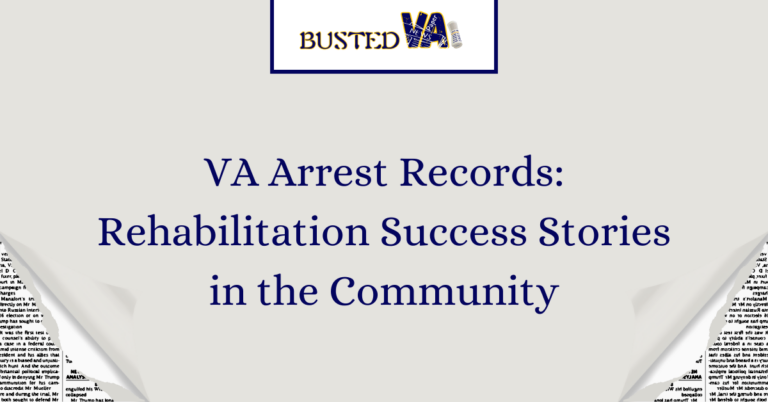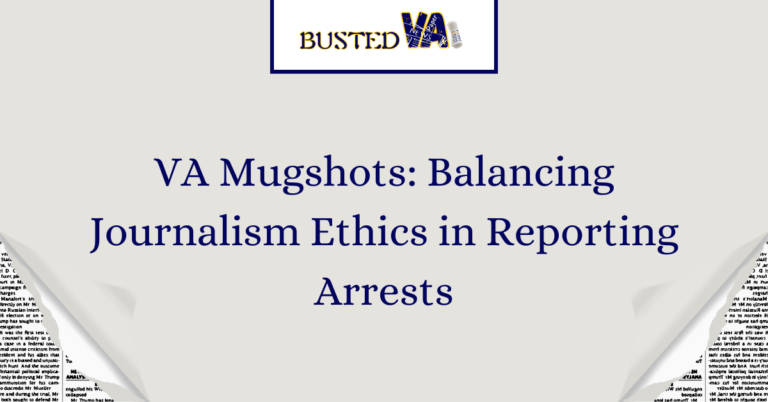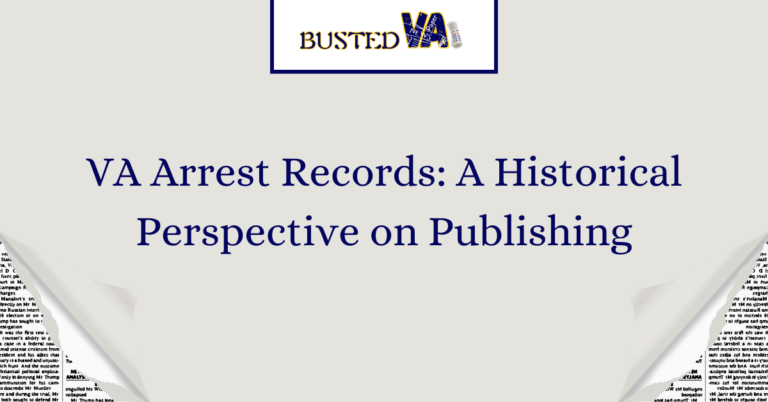The Intersectionality of Race and VA Mugshot Publication
The Intersectionality of Race and VA Mugshot Publication explores the complex relationship between race and the public dissemination of mugshots in the state of Virginia. This thought-provoking study delves into the intersectional dynamics that affect individuals within the criminal justice system, shedding light on the disproportionate impact on marginalized communities.
By examining the phenomenon of mugshot publication through a race-focused lens, this research uncovers the systemic biases that perpetuate societal inequalities. Through an analysis of historical context, legal frameworks, and social implications, this study aims to foster a deeper understanding of the multifaceted nature of race and its connection to the dissemination of mugshots in Virginia.
The Historical Context of Mugshot Publication
Understanding the historical context of mugshot publication is crucial in comprehending its impact on marginalized communities in Virginia today. From its early beginnings in the 19th century to its current digital form, the practice of disseminating mugshots has evolved alongside shifting societal attitudes towards crime and punishment.
During the early years of mugshot publication, it primarily served as a means to identify and track individuals involved in criminal activities. However, as the criminal justice system became increasingly biased towards marginalized communities, mugshots began to perpetuate systemic inequalities.
The Legal Framework Surrounding Mugshot Publication
Examining the legal framework surrounding mugshot publication is essential in understanding the role of the government and law enforcement agencies in perpetuating racial disparities. While mugshots are considered public records, the interpretation and application of laws governing their release vary across states.
In Virginia, mugshots are subject to the Freedom of Information Act, which grants public access to government records. However, the release of these records is not without controversy, as it raises concerns about privacy, stigmatization, and the potential for misuse of information.
Social Implications of Mugshot Publication
The social implications of mugshot publication extend far beyond individual cases. The public dissemination of mugshots can have severe consequences on an individual’s reputation, employment prospects, and overall well-being.
For marginalized communities, these implications are often intensified due to existing societal biases. The disproportionate representation of people of color in mugshots further perpetuates negative stereotypes and reinforces systemic inequalities.
Examining Intersectionality within the Criminal Justice System
Understanding the intersectional dynamics within the criminal justice system is crucial to comprehending the impact of mugshot publication on marginalized communities. Intersectionality recognizes that individuals experience overlapping forms of oppression based on their race, gender, socioeconomic status, and other identities.
Within the context of mugshot publication, intersectionality highlights how individuals from marginalized communities face compounded disadvantages. Factors such as racial profiling, discriminatory policing practices, and socioeconomic disparities contribute to the overrepresentation of certain groups in mugshots.
Addressing the Disproportionate Impact on Marginalized Communities
Addressing the disproportionate impact of mugshot publication on marginalized communities requires systemic changes at various levels. It involves reevaluating laws and policies surrounding the release of mugshots, promoting media literacy to challenge negative stereotypes, and advocating for criminal justice reform.
By raising awareness about the intersectionality of race and mugshot publication, we can work towards dismantling the systemic biases that perpetuate societal inequalities. It is crucial to foster a society that values fairness, justice, and equal opportunities for all individuals, regardless of their race or background.
FAQs
What is the intersectionality of race and VA Mugshot Publication?
The intersectionality of race and VA Mugshot Publication refers to the overlapping and interconnected nature of race and the practice of publishing mugshots in Virginia. It explores how race plays a role in the publication of mugshots and the potential impact it has on individuals from different racial backgrounds.
Why is the intersectionality of race and VA Mugshot Publication important?
The intersectionality of race and VA Mugshot Publication is important because it sheds light on the potential racial bias and discrimination that can occur in the practice of publishing mugshots. It raises awareness about the unequal treatment of individuals from different racial backgrounds and the need for fair and unbiased practices.
How does the intersectionality of race and VA Mugshot Publication affect marginalized communities?
The intersectionality of race and VA Mugshot Publication can have a disproportionate impact on marginalized communities. It can perpetuate stereotypes, stigmatize individuals, and contribute to systemic inequalities. It is important to address these issues to ensure fair treatment and equal opportunities for all members of society.
What steps can be taken to address the intersectionality of race and VA Mugshot Publication?
To address the intersectionality of race and VA Mugshot Publication, it is important to advocate for transparency and accountability in the publishing process. Implementing policies that consider the potential racial bias and discrimination in mugshot publication can help ensure fair treatment. Additionally, promoting diversity and inclusivity in media representation can help challenge stereotypes and promote equality.
How can individuals contribute to addressing the intersectionality of race and VA Mugshot Publication?
Individuals can contribute to addressing the intersectionality of race and VA Mugshot Publication by raising awareness about the issue, supporting organizations and initiatives that advocate for fair and unbiased practices, and engaging in conversations that challenge stereotypes and promote equality. By collectively working towards change, we can create a more just and inclusive society.







